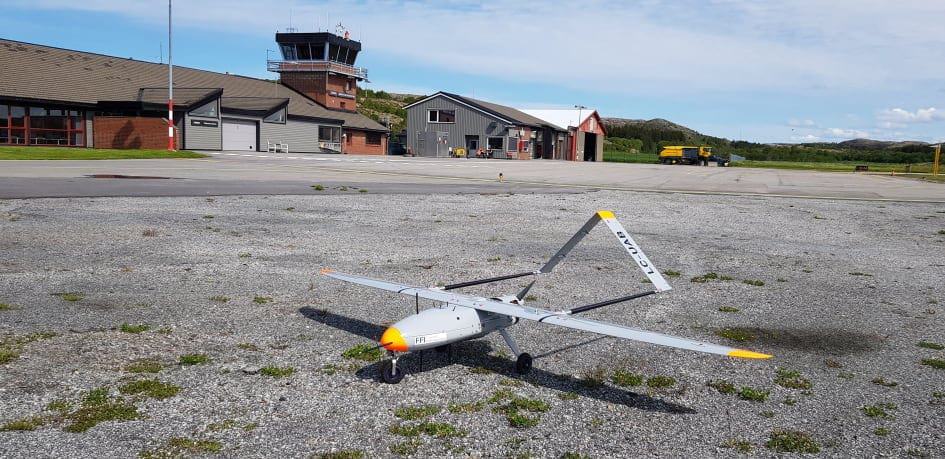

Radionor Communications’ phased-array communications technology has been integrated into a modified Penguin B UAV (unmanned aerial vehicle), owned by the Norwegian Defence Research Establishment (FFI), that undertook a 200km coastal long-distance flight through several civilian airspaces.
Radionor’s Cordis Array II next-generation technology uses an electronically steerable beam to provide point-to-multipoint broadband data links. The system provides wireless IP connectivity over non-line-of-sight ranges, with high output power and sensitive reception that exceed conventional radio systems.
The UAV used Radionor’s phased-array datalink technology to continually stay connected to its operations centre as it passed through different types of controlled civil airspace handled by civil air traffic control. The unmanned aircraft was fitted with a transponder that allowed it to flexibly operate in controlled airspace, and its status and telemetry were accessible online via the broadband datalink to effectively maintain command and control capabilities for the entire flight.
The long-distance UAV flight was performed as part of the Hybrid Operations in the Maritime Environment (HOME) program, a cooperation between Radionor Communications, Norwegian University of Science and Technology (NTNU) and Maritime Robotics, and funded by the Norwegian Research Council and FFI. The flight took off from Frøya on the mid-western coast of Norway and flew north towards the sea and onwards to Rørvik. Flight operations were performed from both locations, with a mobile operations station and safety pilot provided by NTNU being used to assist with the final approach and landing. In total, the flight lasted 2 hours and 12 minutes, flying 200 kilometers and landing approximately 170 kilometers from where it took off.
The mission demonstrated the viability of long-range UAV operations involving transit between multiple bases, with constant reliable command and control delivered using phased-array communications. This will allow greater flexibility in designing UAS missions and services for applications requiring multiple operations areas, such as search and rescue, or where aircraft may need to land at different bases, such as freight transport.







Related Posts
New Drone Fires Thales Missile in Unmanned Air Combat Milestone
UAS Startup Accelerator Awards 3M in Funding
US Navy Orders Unmanned Tactical Resupply Aircraft